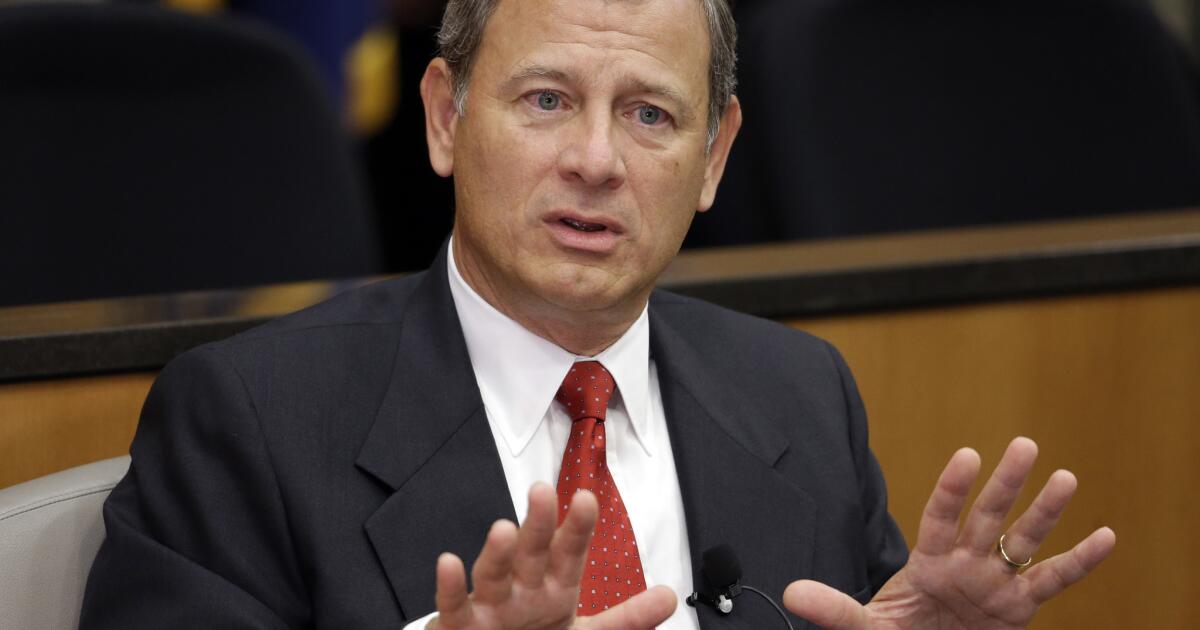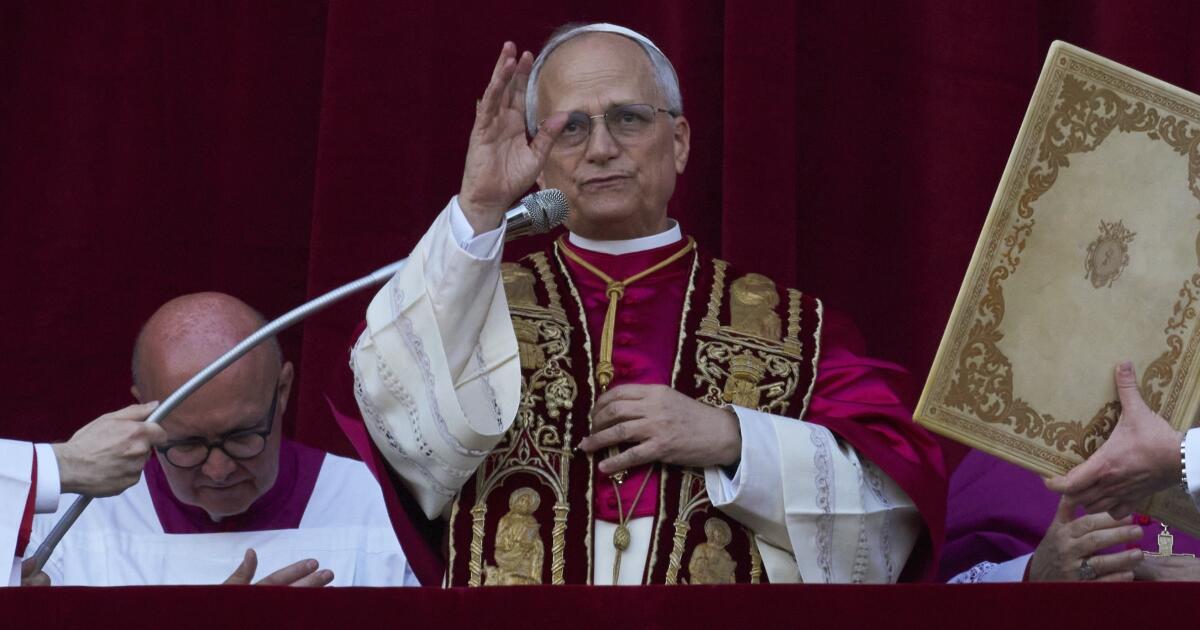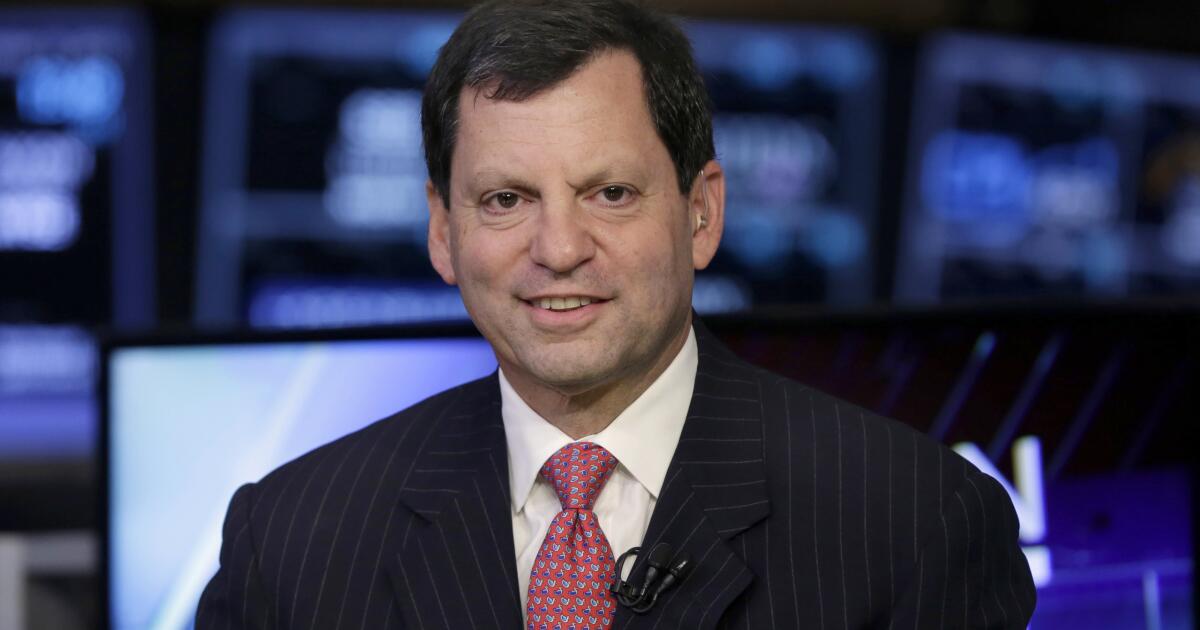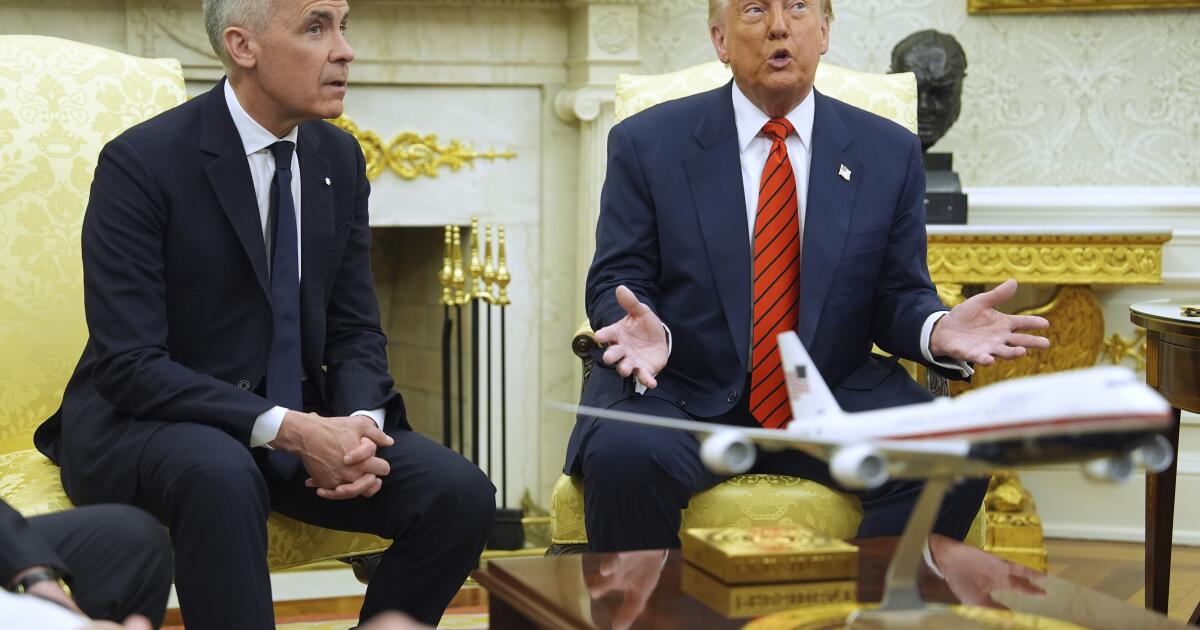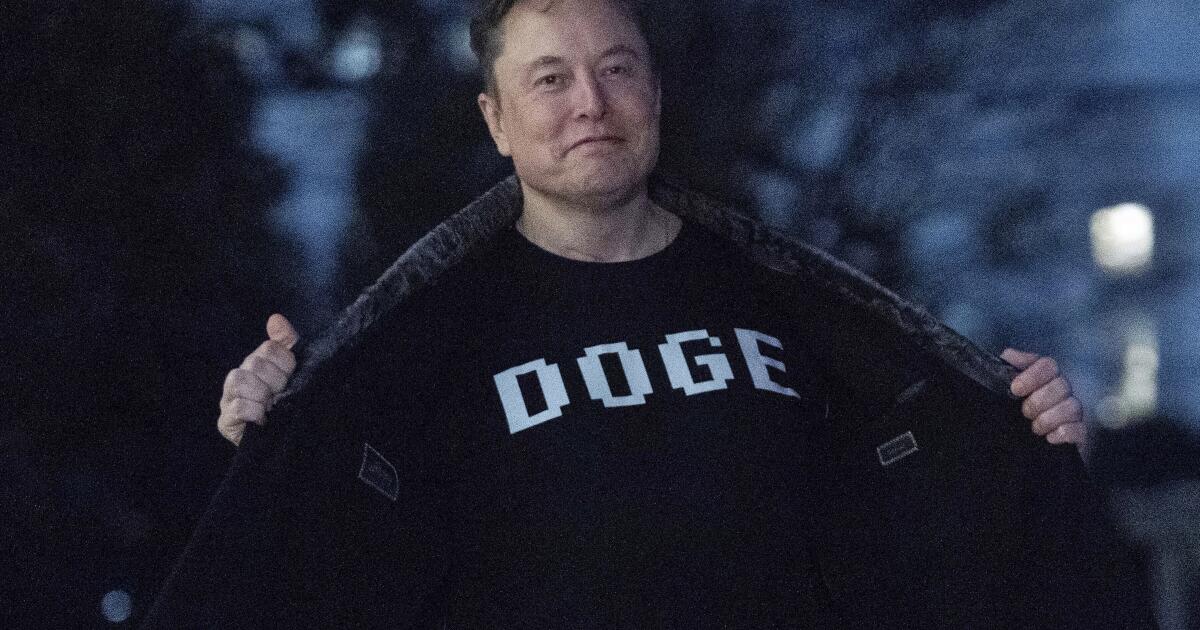U.S. Chief Justice John Roberts warns of social media’s danger to democracy
WASHINGTON — Chief Justice John G. Roberts Jr., whose new year will include presiding at a Senate impeachment trial of President Trump as well as leading the Supreme Court, called Tuesday for more focus on civic education at a time “when social media can instantly spread rumor and false information on a grand scale.”
In his year-end report on the judiciary, Roberts steered clear of politics, Trump and the looming impeachment trial, speaking instead about the importance of independent courts and citizens who understand democracy.
“Each generation has an obligation to pass on to the next, not only a fully functioning government responsive to the needs of the people, but the tools to understand and improve it,” he said. “I ask my judicial colleagues to continue their efforts to promote public confidence in the judiciary, both through their rulings and through civic outreach. We should celebrate our strong and independent judiciary, a key source of national unity and stability. But we should also remember that justice is not inevitable. We should reflect on our duty to judge without fear or favor, deciding each matter with humility, integrity and dispatch.”
This is not a new theme for the chief justice. Just over a year ago, Roberts issued an extraordinary statement in response to Trump’s tweeted critique of a judge as being an “Obama judge.”
“We do not have Obama judges or Trump judges, Bush judges or Clinton judges,” Roberts said. “What we have is an extraordinary group of dedicated judges doing their level best to do equal right to those appearing before them.”
His devotion to nonpartisan judging will be put to a test in the next year. The Supreme Court has agreed to decide whether Democratic-controlled House committees and a New York prosecutor can subpoena Trump’s financial records, including his tax returns.
And in the weeks ahead, Roberts will cross 1st Street on Capitol Hill and preside over a Senate impeachment trial of Trump.
The details and timing of the Senate trial await the return of lawmakers to Washington next week. The high court is due to hear arguments in the morning during the weeks of Jan. 13 and Jan. 21.
Roberts’ official title is chief justice of the United States, and as such he is the leader of the entire federal court system, not just the Supreme Court. In this year’s report, he described the importance of the “85 brilliant essays” that appeared in New York newspapers in 1787 and 1788 and became known as the Federalist Papers. They explained the “core principles of our constitutional democracy,” Roberts said.
Alexander Hamilton and James Madison wrote most of the essays, while John Jay, the nation’s first chief justice, contributed only five. “Perhaps if Jay had been more productive, America might have awarded him with a Broadway musical,” Roberts wrote, referring to hit musical “Hamilton.” But he was badly injured in what was dubbed “the Doctors’ Riot,” Roberts said.
It began with a rumor that medical students were robbing graves to practice surgery on cadavers, he said. An angry mob formed and stormed a New York hospital. Jay, who lived nearby, grabbed a sword and tried to defend the medical staff, but a rioter tossed a rock that struck him. He survived, but did not contribute further to the influential essays.
“It is sadly ironic that John Jay’s efforts to educate his fellow citizens about the framers’ plan of government fell victim to a rock thrown by a rioter motivated by a rumor.” The three authors “ultimately succeeded in convincing the public of the virtues of the principles embodied in the Constitution. Those principles leave no place for mob violence,” he wrote.
“But in the ensuing years, we have come to take democracy for granted, and civic education has fallen by the wayside. In our age, when social media can instantly spread rumor and false information on a grand scale, the public’s need to understand our government, and the protections it provides, is ever more vital.”
The court also announced that the chief justice’s mother, Rosemary A. Roberts, died Saturday surrounded by her family in Westminster, Md. She was 90.
